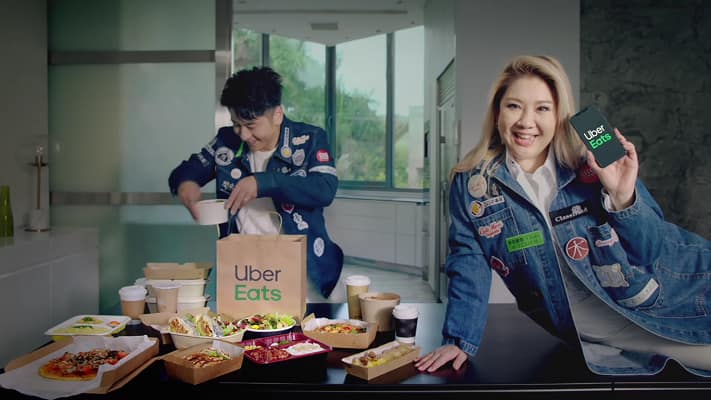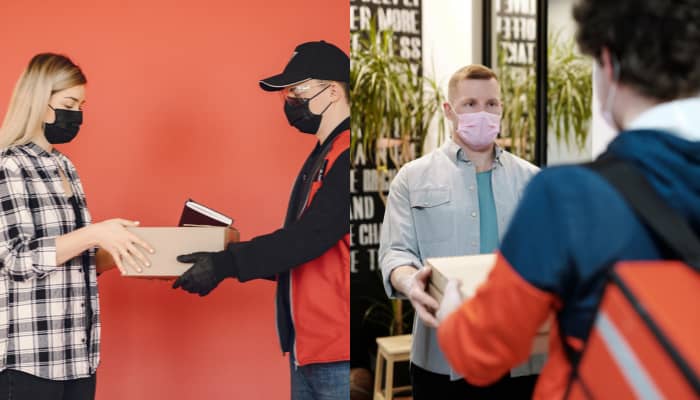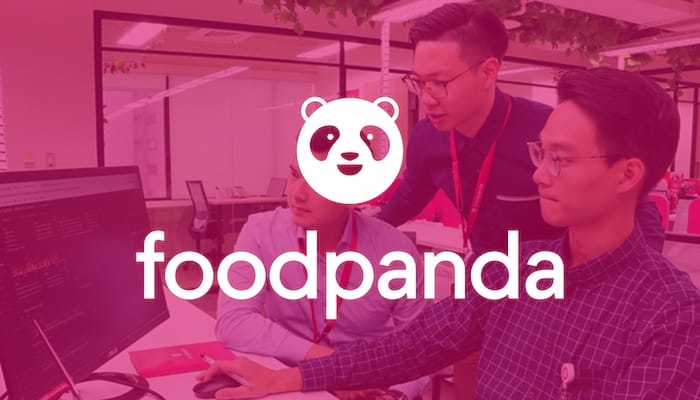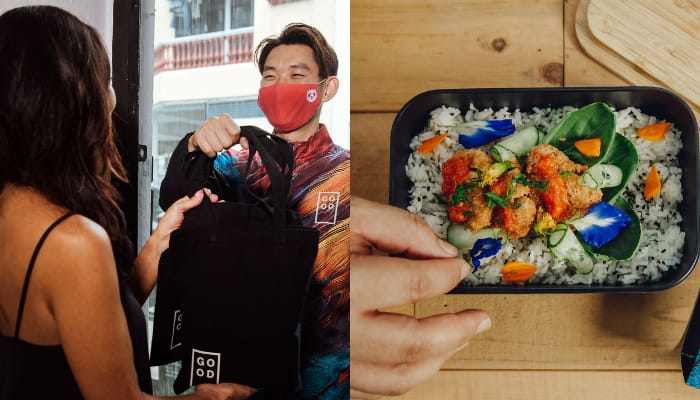Manila, Philippines – Courier services in the Philippines, whether for food deliveries or for package logistics, have been an integral part of the Filipino e-commerce shopping. With the heightened usage locally, media intelligence and insights company Isentia has recently published a study noting the local status of courier players, and how their ups and downs can help them strive for local competition.
The Philippine arm of Grab has seen its fair share of the positive limelight after it capitalized on the infamous ‘lugaw incident’, which other brands have also banked into. For context, last 31 March, a law enforcer confronted a GrabFood driver for delivering lugaw, a local rice porridge meal that the latter deemed non-essential, which has earned flak from netizens.
Grab banked on this trend by releasing a promo that uses the code “LUGAWISESSENTIAL”, generously applying no delivery charges off their GrabFood orders.
On the other hand, food delivery courier foodpanda in the Philippines had a minor backlash from the Filipino netizens following its partnership with fast-food chain McDonalds last 20 March for a ‘50% discount for food purchases’. Netizens were quick to point to the misleading promo campaign, as the fine print of the campaign said that the maximum discount for the purchase is capped at PHP75.
According to Isentia, compared to just headlining ‘max PHP75 off of your food purchase’, consumers will still see this as a win and will prompt more positive feedback than complaints from being misled to getting a smaller discount. Said promo debacle garnered 5,176 buzz during the day it was announced.
“Delivery services are now needed more than ever. But what delivery service should you avail? This trendspotting report incorporates the inputs of all consumers and translating them not just into actionable insights that brands can use, but also into informed decisions consumers can make when choosing which delivery courier is best for them,” Francis Angelo Calucin, insights analyst at Isentia Philippines said.
On a different spectrum, local courier Lalamove has prevailed in the local market due to its recognition of its employees who strive in their work even during the pandemic. However, many netizens are disappointed with the company’s culture of employees only receiving low standard rates and insufficient incentives.
Just recently, a Facebook group called “Lalamove Riders Group” has been flooded by mixed sentiments with engaged netizens commenting and contributing to discussions. With over 18,000 members, it serves as space for Lalamove riders to share and exchange information regarding company updates and their own experiences as drivers for Lalamove.
Meanwhile, a new local courier player has been noted to stand out from its competitors due to its unique offering of online franchising. With ads suggesting that one can earn up to PHP60k a month, it is not a wonder why app downloads reached 153,644 within just four months from its launch. According to Isentia data, there was a total of 1,898 buzz and Toktok-associated mentions in March 2021.
According to Victoria Bernadette Lazo, insights analyst at Isentia Philippines, the e-commerce and logistics industries have boomed and continued to thrive, and with tighter community quarantine guidelines in the country, more people realize the convenience of having things delivered to their doorstep.
“Now, more than ever, is the right time for e-commerce companies to listen in on the buzz surrounding their industry. On top of listening, these companies need to look for ways to make the conversations work in their favor,” Lazo stated.
Rowelyn Bigaya, insights analyst at Isentia Philippines, added that brands have shifted towards a more digital aspect so customers can buy their products from the convenience and safety of their homes amidst the pandemic.
“Despite contact restrictions and lockdown regulations, companies could continue operation and provide jobs while adapting to the new normal. The use of trendspotting studies will highlight how brands can leverage the potential of digital transformation and optimize conversations to understand and cater to the needs of the public,” Bigaya stated.
















